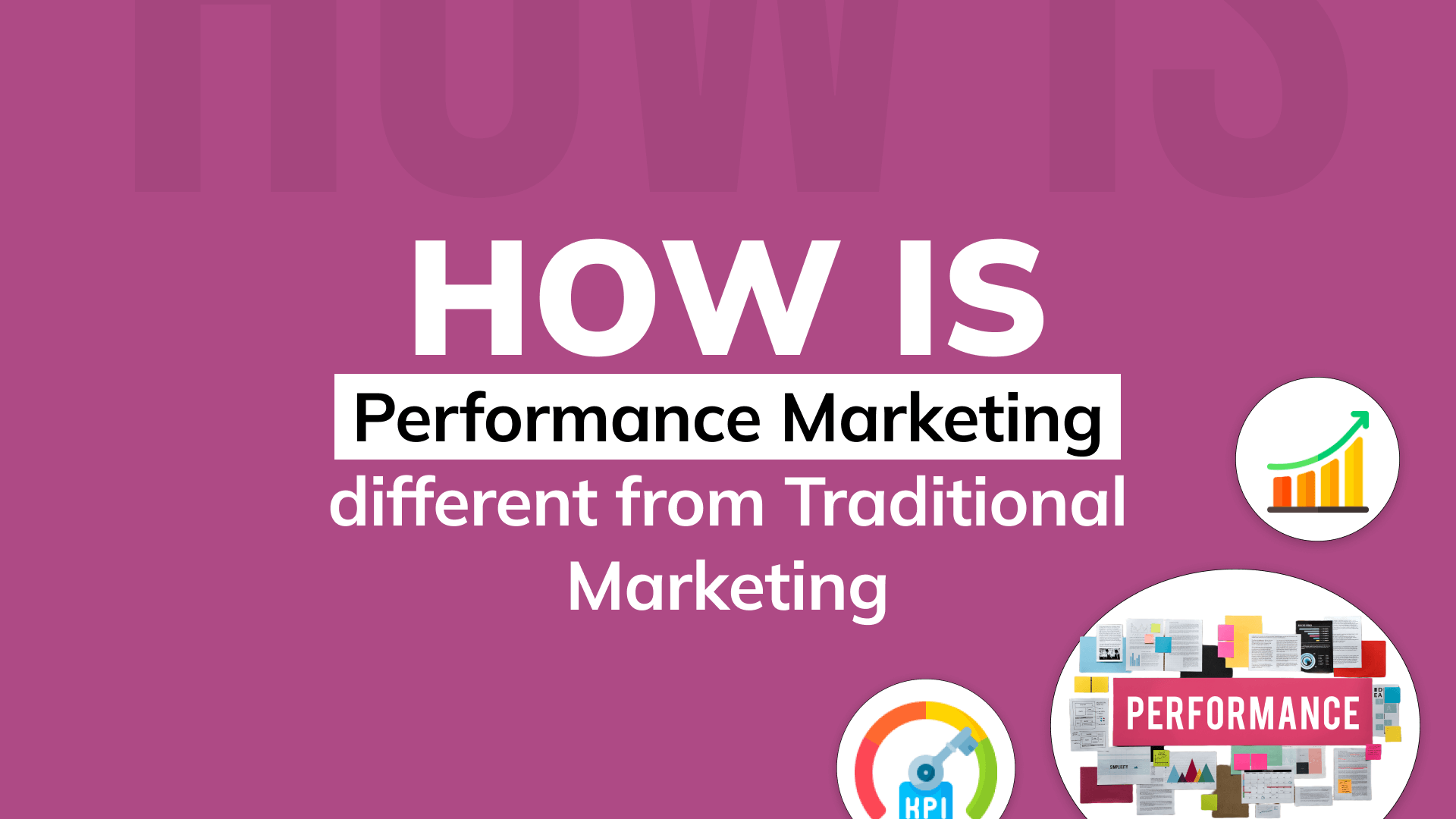
Marketing is a crucial part of any business strategy. It helps companies reach their target audience, promote their products or services, and increase their revenue. However, with the advent of new technologies and the rise of the digital era, marketing strategies have undergone significant changes. One of the most significant changes has been the shift from traditional marketing to performance marketing.
So, what is performance marketing, and how is it different from traditional marketing? Let’s delve deeper into this topic and understand the key differences between the two.
Traditional Marketing
Traditional marketing involves the use of various channels to promote a brand, product, or service. These channels include print ads, television commercials, billboards, and radio advertisements. The primary objective of traditional marketing is to create brand awareness and generate leads.
One of the main characteristics of traditional marketing is that it is challenging to measure its effectiveness. For example, if a company runs a television ad, it is challenging to track how many people saw the ad and how many of them actually bought the product or service.
Traditional marketing is also generally more expensive than performance marketing. Companies have to pay upfront costs to create and run their ads, without any guarantee of return on investment. Traditional marketing is also typically a one-way communication channel, meaning that the company is sending a message to the audience without receiving any feedback.
Performance Marketing
Performance marketing, on the other hand, is a form of digital marketing that is entirely focused on measurable results. Performance marketing involves the use of various online channels, such as search engines, social media, email, and affiliate marketing, to drive measurable results.
Performance marketing is based on the principle of pay-for-performance. This means that companies only pay for their marketing efforts when a specific action is taken by the user, such as a click, download, or purchase. For example, if a company runs a Facebook ad and a user clicks on the ad and buys the product, the company only pays for the click that resulted in a sale.
One of the key benefits of performance marketing is its ability to track and measure results accurately. Companies can see precisely how many clicks, impressions, and conversions their marketing efforts are generating, and they can use this data to optimize their campaigns for maximum efficiency.
Performance marketing is also generally more cost-effective than traditional marketing. Companies can set their budgets and bids for specific actions, which allows them to control their costs and ensure that they are getting the best return on investment.
Finally, performance marketing is a two-way communication channel. Companies can use feedback from users to optimize their campaigns and improve their messaging, which can lead to better engagement and conversion rates.
In conclusion, while traditional marketing is still an essential part of many businesses, performance marketing is becoming increasingly popular due to its focus on measurable results and cost-effectiveness. Performance marketing is a highly targeted and measurable form of marketing that allows companies to optimize their campaigns for maximum efficiency. It’s essential for businesses to understand the differences between traditional marketing and performance marketing and choose the right marketing strategy that fits their business needs.
Performance marketing has become a critical element for businesses looking to increase their ROI and reach their target audience. As such, many companies are turning to performance marketing agencies like i-engage to help them achieve their marketing goals. i-engage is a leading performance marketing agency that specializes in helping real estate and healthcare clients improve their online presence through data-driven strategies. They offer a range of services, including SEO, PPC, social media marketing, and email marketing. i-engage has helped their clients achieve remarkable success, with some real estate clients seeing a 117% increase in leads and some healthcare clients achieving a 400% increase in website traffic. With such impressive results, it’s no wonder why more and more businesses are turning to i-engage for their performance marketing needs.

Comments are closed.